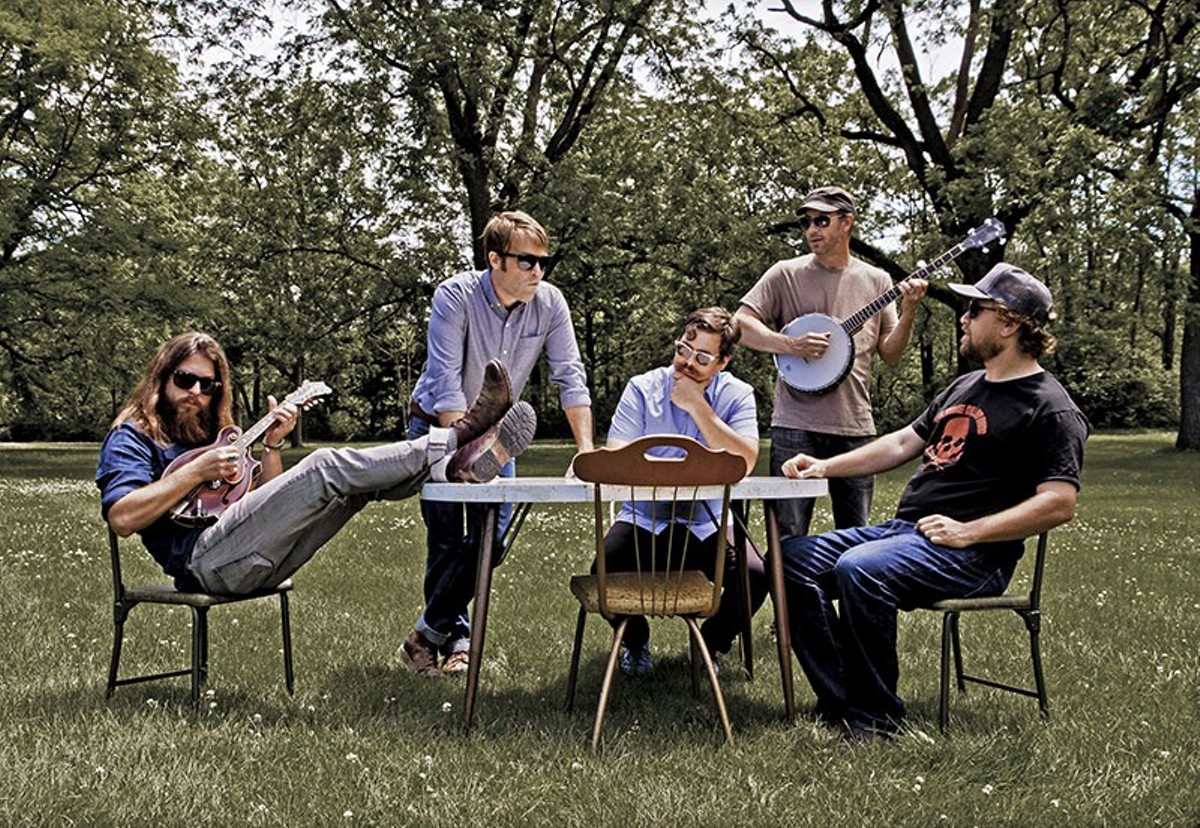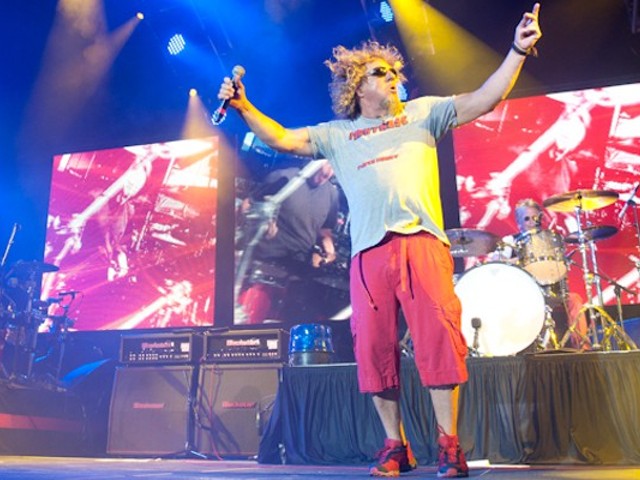It wasn't that long ago that Paul Hoffman was gigging with a few tents in the back of the van. Tight budgets and small checks from booking agents forced his band, Greensky Bluegrass, to camp when they toured.
"We'd get to a venue, maybe they would be good enough to give us dinner, then we'd play," Hoffman, the group's mandolin player and vocalist, says from his home in Colorado. "Then we'd go back to whatever campsite we were staying at, grab some ground and try to get some sleep before getting up and doing it again in another town."
The touring nights are now a little bit more comfortable for the band, which hails from Kalamazoo, Michigan. They've traded the sleeping bags and tents for hotel rooms, which fall a little more in line with the rock-star-on-tour image. The gigs have gotten better too. When Hoffman was giving this interview, he was preparing to leave for Mexico to play at Strings & Sol, a festival at an all-inclusive oceanside resort.
Over the past decade, Greensky Bluegrass has gone from playing half-empty bars to selling out two- and three-night stands at respectable venues. Hoffman says the band's rise is kind of surreal, given that the music they play is rarely heard on any mainstream radio station.
"You know, we haven't really spent a lot of time dwelling on it," he says. "We just kept playing and playing. Traveling, meeting new people and making friends. And then one day we wake up and we're playing at Red Rocks [Amphitheatre in Morrison, Colorado]."
It's somewhat of an enigma that in an era of one-and-done pop songs and a thriving urban and dance scene, the kind of music Greensky plays would be able to get a foothold and even get to the ears of a captive audience. Despite the group's name, it doesn't play bluegrass music. Rather, it plays music that is a conglomeration of different genres.
"It's acoustic jams with bluegrass influence and rock influence," Hoffman says. "There's folk, there's some jammin'. There's a lot going on at any given time. It's good music backed by real, relatable lyrics."
So how has a hodgepodge of musical styles played by an all-acoustic lineup gotten so popular? "We rock the F out," Hoffman says. "I really think that's the big reason we have kind of become a draw. We have fun, and I think this kind of music is contagious. It's kind of the opposite of what makes EDM popular. People love it because it's highly produced. We are the complete opposite.
"You look at some of the bands over the last few years, like the Avett Brothers and the Lumineers — they got popular because they play a stripped down, acoustic, lyrically driven style of music. And they've had a lot of success with that. I think we are kind of following in that vein."
Banjo player Mike Bont thinks the band's popularity might be even more simply explained. "People love the spontaneity," he says. "The way we play, you could show up one night and hear a distinct sound, then come back the next night and hear something completely different. With us, you are never going to hear the same song played the same way. Ever."
Despite being able to bend genres and play unscripted, high-energy shows, it hasn't been easy to get noticed. Today's musical landscape requires new acts to bring a solid catalog to the table. If they don't, they are liable to be drowned out by the next YouTube up-and-comer.
"We never went in to this business to become huge stars," Hoffman says. "We never knew we'd be popular in any sense. You know, pop music is pop music. We aren't ever going to be Taylor Swift or Adele or Bieber. We'll never be big like that. But we've carved a little place for ourselves, and it's working out. We wanted to do string jams with meaningful lyrics, and I'm proud of the music we're putting out.
"The way (music) is heard now is different," he adds. "I know that sounds weird, but it's true. If you've got an Internet connection, you can listen to any performance from just about any band. So, you can either let that pressure smash you, knowing that you have to be perfect every time you step on stage, or you can kind of laugh at it, go out and play, and know the people who want to hear you will take it for what it's worth."
Bont prefers the band's slow burn to prominence over an explosion into superstardom. "I just think things happened the way they were supposed to," he says, adding that the band's big break came in 2006, when it won the band contest at the Telluride Bluegrass Festival in Colorado.
"That was a turning point," he says. "Winning an award really gave us some confidence, you know? It made us say, 'Well, we won a contest, maybe we're doing something right.'"
From there, the band adopted a touring schedule that put them on the road 200-plus days a year. That was ten years ago, and they still haven't slowed down.
The group's current tour will see it play 26 shows through the end of February. "It's still fun," Hoffman says. "Traveling still feels good. It is what it is. When it stops being fun, that's probably when we'll stop doing it. Until then, we'll probably have a full touring schedule."
Bont even says that, at this point, it doesn't seem like touring. "You know, we've been doing this for a long time, and we've made a lot of friends on the road," he says. "So, for me, a couple of times a year I get to get on the road and go see all my friends in different places. Plus I get to play music when I'm doing it."







